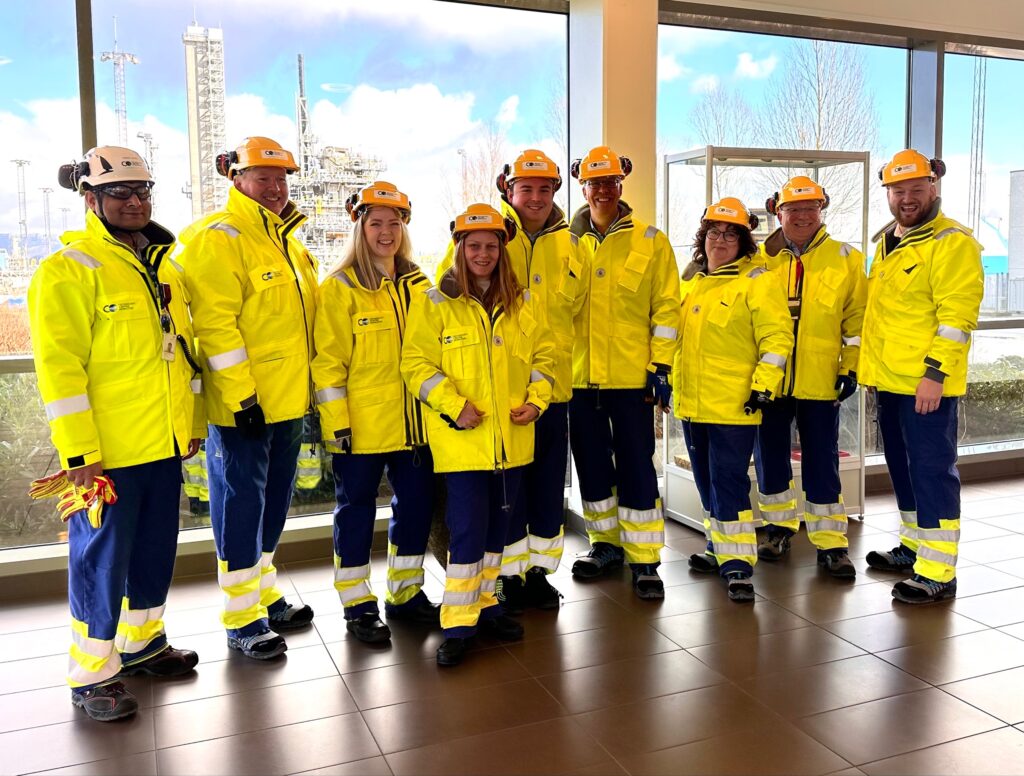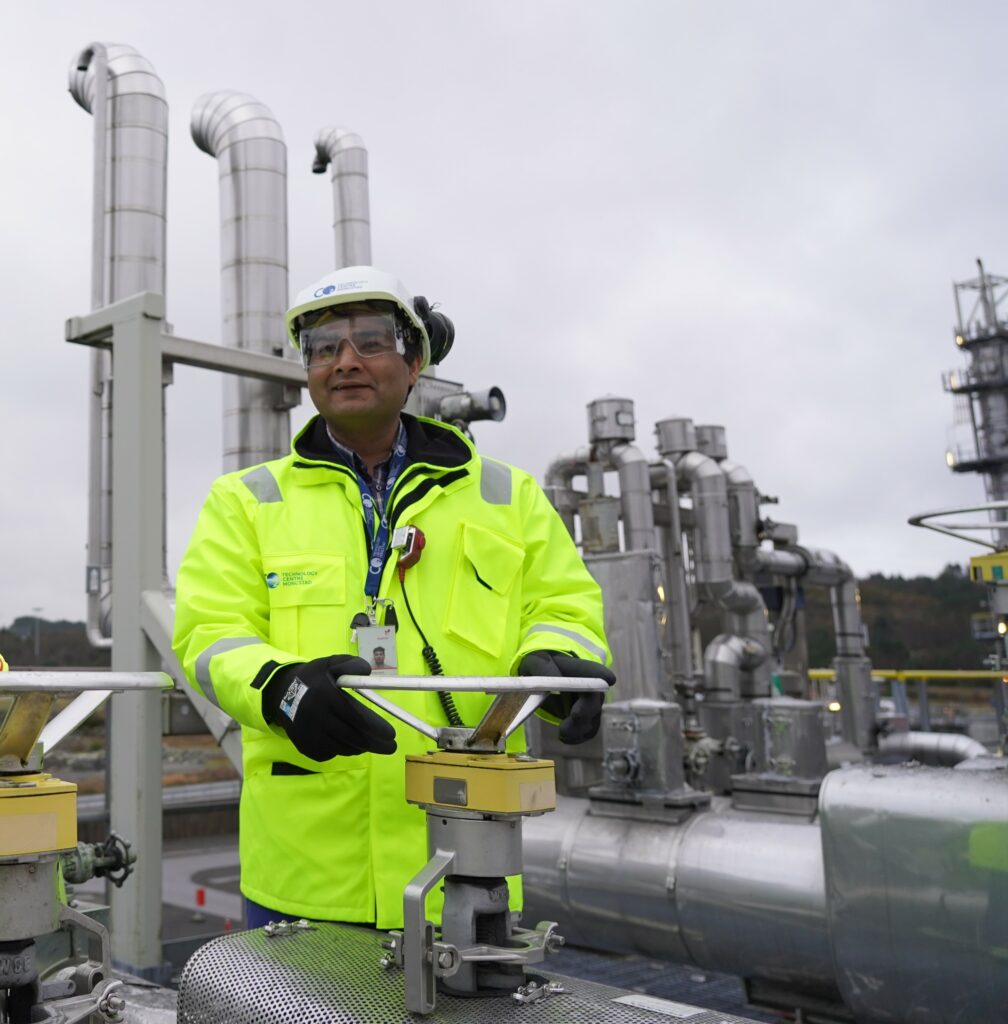22.03.2023
– TCM delivers all-time high in 2023
“TCM demonstrates that the technologies the world needs to capture CO2 are performing at their very best. Now that the green transition is gaining momentum, it is vital that the world-leading expertise in our possession is put to use. 2023 will see us carry out five test campaigns, which will mark a new all-time high for us.”
Those were the words of TCM Managing Director Muhammad Ismail Shah during a meeting with Storting member Linda Monsen Merkesdal and deputy representative Benjamin Jakobsen held at TCM on Monday 20 March. The two Labour parliamentarians had made the trip to TCM together with a delegation of local representatives from the municipalities of Alver and Austrheim, led by Austrheim mayor Per Lerøy (Labour). Einar Vaage, a project manager with Greenspot Mongstad, took the initiative to set the meeting up.
During the encounter, Shah explained the importance testing at TCM has had for the realisation of the two plants now under construction in Norway that will allow full-scale carbon capture (at Heidelberg Materials’s cement factory in Brevik and the Hafslund Oslo Celsio waste incineration plant, respectively). Internationally, technology testing at TCM has also proven to be decisive for which suppliers are awarded contracts for large CCS projects.

A positive meeting between Norwegian Labour Party politicians and the TCM management team. From left: Muhammed Ismail Shah (TCM), Børge Brundtland (Industriutvikling Vest), Sara Sekkingstad, Linda Monsen Merkesdal, Benjamin Jakobsen, Einar Vaage, Nina Bognøy, Per Lerøy og Pål Adrian Clausen Ryen.
Norwegian politicians stuck to their guns
“The Norwegian government was responsible for financing the construction of the world’s largest and most flexible centre for testing capture technologies. It is safe to say that TCM has proven to be a gift to the world,” Shah said.
“This gift would never have come to fruition for us at TCM or the Norwegian nation as a whole had it not been for far-sighted politicians who identified that carbon capture and storage is a key part of efforts to meet global climate goals. Our politicians, regardless of who has been in government, have also stuck to their priorities – even in the years when CCS has been sailing against the prevailing current.”
Shah emphasised that Norwegian industry and Norway as a whole are now profiting from this pioneering approach, not least through the realisation of the projects that constitute Longship.
Improved efficiency
“Despite reductions in our budgets, we have managed to increase levels of activity, both as a result of those coming to test technologies paying a larger portion of the costs that entails, and because we are working more efficiently than in the early days. This year, a total of five test campaigns will be carried out at the facility, compared to just a couple a year as was previously the case.” Shah added “This is a new all-time high for us.”
TCM has been operational since 2012 and is underwritten by guarantees from the state and its industry-based owners to ensure operation over the first five years and then for two subsequent three-year periods. The current operating period will expire at the turn of the year. Negotiations are now underway between the state and TCM’s other owners (Equinor, Shell and TotalEnergies) about what the future will bring.
A key to continued progress
“The message from me and my colleagues at TCM is clear,” said Muhammad Ismail Shah. “There will be a need both for further testing and improvement of the mature technologies based on amine, which, for example, will be used in the Longship projects, and for the development of completely new and more cost-effective technologies. CCS has come a long way, but the best is yet to come! TCM has the facilities needed to drive technology development forward, and we have the expertise to provide training to personnel who will operate full-scale facilities and to help solve technical problems that crop up. In other words: TCM is the key to the continued progression of CCS.”

